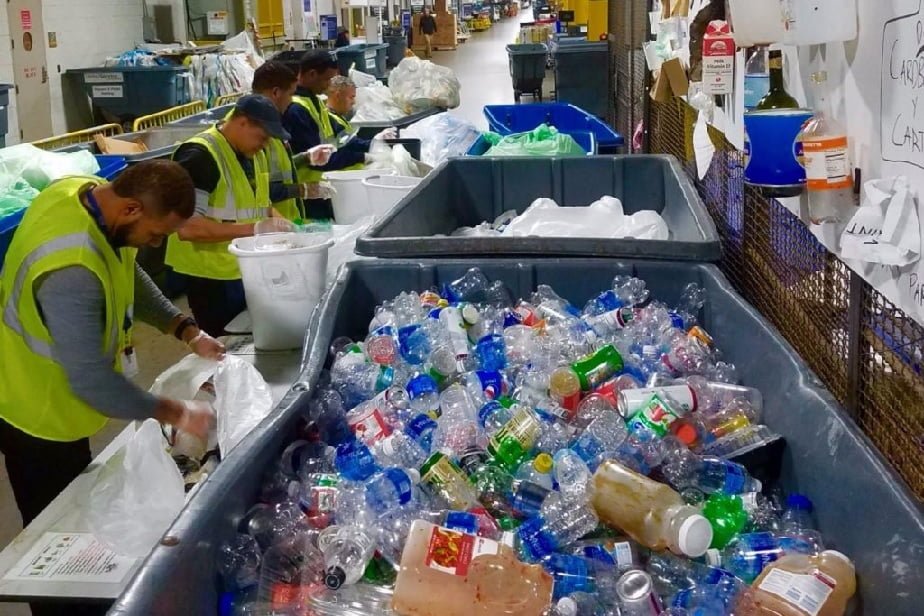Introduction to Commercial Waste Management
Managing commercial waste is an essential task for businesses today. Businesses need to adopt effective waste management strategies because of the growing emphasis on environmental sustainability and the costs associated with waste disposal. Companies can follow the rules and benefit the environment by minimizing, reusing, and recycling waste materials. Numerous businesses utilize specialized commercial waste services to optimize their waste management procedures and guarantee adherence to regulations. These services help manage waste more efficiently, offering expertise and resources that individual businesses may need more. These strategies increase operational efficiency and can lead to significant cost savings over time, fostering a more sustainable business model.
Reducing Waste at the Source
One of the most effective strategies for managing commercial waste is to reduce it at the source. This method includes making wise buying choices, selecting items with less packaging, and favoring long-lasting products over throwaway ones. By implementing these practices, businesses can significantly lessen the volume of waste produced, cutting costs and reducing their environmental footprint. For instance, purchasing bulk can reduce packaging waste, and choosing reusable materials can lower long-term expenses. Promoting a paperless environment and opting for digital solutions such as electronic invoicing and cloud storage can contribute significantly to source reduction. Companies can also work with suppliers to redesign product packaging, making them more environmentally friendly.
Implementing Recycling Programs
Recycling is a powerful tool in commercial waste management. Businesses can reduce a large portion of landfill waste by establishing a thorough recycling program in the office. It’s essential to educate employees about what materials can be recycled and provide convenient access to recycling bins. According to recent studies, companies with robust recycling programs can reduce their waste disposal costs by up to 30%. Furthermore, recycling programs can enhance a company’s public image and show a commitment to environmental responsibility. In turn, this can attract eco-conscious consumers and partners. A successful recycling initiative also requires continuous education and updating of policies to adapt to new recycling standards and technologies.
Steps to Establish a Successful Recycling Program
- Conduct a waste audit to identify recyclable materials.
- Set up clearly labeled recycling bins in accessible locations.
- Educate employees through training and informational materials.
- Monitor and measure recycling progress regularly.
The waste audit helps businesses understand their waste composition and identify critical areas for improvement. Clearly labeled bins make it easy for employees to segregate recyclable materials correctly. Educational programs ensure everyone is aware of recycling protocols, and continuous monitoring allows for adjustments to improve the program’s effectiveness. Moreover, businesses can partner with local recycling firms to handle specific types of waste and receive regular feedback on their recycling efforts. This partnership can also offer specialized recycling solutions for harder-to-recycle materials.
Composting Organic Waste
Composting is a valuable method for waste management, particularly beneficial for food industry businesses. Composting food scraps and yard waste creates valuable compost that enhances soil quality. This action decreases the quantity of garbage going to landfills and promotes environmental sustainability. Composting organic materials can reduce waste volume by up to 50%, providing a substantial benefit. The compost produced can also be used in landscaping projects or sold, creating a potential revenue stream. Restaurants, cafeterias, and other food service businesses can significantly benefit from composting programs, as they can reduce waste disposal costs and improve public perception.
Utilizing Technology in Waste Management
Smart bins, waste tracking software, and other innovative tools can help businesses monitor waste production, identify patterns, and make data-driven decisions to improve waste management efficiency. For example, commercial waste management technology has advanced significantly, offering solutions such as IoT-enabled waste bins and advanced analytics platforms. These technologies provide real-time data on waste levels, enabling more efficient collection schedules and reducing costs associated with waste disposal. Additionally, smart waste management solutions can help businesses identify opportunities for further waste reduction and streamline their overall waste management processes. It can lead to improved compliance with environmental regulations and a more substantial commitment to sustainability.
Benefits of Technology in Waste Management
- Improved accuracy in waste tracking and data collection.
- Enhanced efficiency through automation and real-time monitoring.
- Cost savings by optimizing waste collection routes and schedules.
Businesses can make informed decisions about waste management practices with better data accuracy. Automation reduces human error and increases the efficiency of waste disposal processes. Optimized collection routes save time and fuel, reducing the environmental impact of waste transportation. Moreover, businesses can leverage technological advancements to access comprehensive reports and analytics, enabling them to evaluate their waste management performance and pinpoint areas for enhancement. These insights can help companies to develop more effective waste reduction strategies and set achievable sustainability goals.
Engaging Employees in Waste Reduction Efforts
The success of waste management programs relies heavily on the engagement of employees. Businesses should educate and motivate employees to participate in waste reduction efforts. Incentives, workshops, and clear communication can foster a culture of sustainable waste management within the organization. When employees are involved and informed, the overall effectiveness of waste reduction strategies can increase significantly. Moreover, an engaged workforce can bring innovative ideas to the table, further enhancing waste reduction efforts. Encouraging employees to participate in eco-friendly practices like carpooling or reusable containers can create a more sustainable workplace. Celebrating milestones and achievements in waste reduction can further motivate employees to stay committed to the cause.
Measuring and Monitoring Waste Management Performance
Regularly measuring and monitoring performance is essential for continuous improvement in waste management. Businesses can track key metrics such as waste diversion rates, recycling rates, and cost savings. This data can help identify areas for improvement and highlight successful strategies. Companies that consistently measure waste management performance can adapt quickly to changes and maintain their sustainability goals. Utilizing software tools to track these metrics can streamline the process and provide more accurate data. Additionally, businesses can set benchmarks and compare their performance with industry standards to ensure they are on the right track. Periodic reviews and audits help identify areas for further improvements, ensuring that waste management practices remain practical and up-to-date.
Final Thoughts
Effective management of commercial waste is not only beneficial for the environment but also for business efficiency. Businesses can achieve sustainable waste management goals by adopting strategies such as reducing waste at the source, implementing recycling programs, composting, utilizing technology, engaging employees, and measuring performance. Incorporating these practices into daily operations can lead to significant long-term benefits, both economically and environmentally. Businesses should continuously seek new ways to optimize their waste management processes and stay informed about industry trends and technologies. By doing so, they can build a more sustainable future and enhance their reputation as environmentally responsible organizations.



